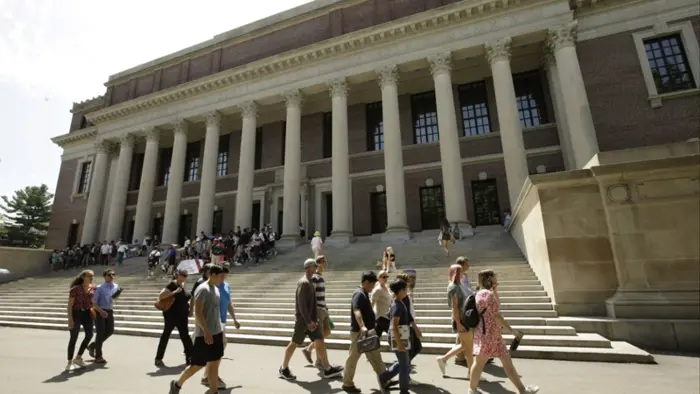England’s universities flex their muscles to hike fees, while students get a bum deal
November 11, 2024 at 8:00 AM
2 minutes read

The recent announcement by Education Secretary Bridget Phillipson to raise tuition fees from £9,250 to £9,535 has sparked renewed debate on the value and effectiveness of university education in the UK. While universities are essential institutions, critics argue that the current system benefits institutions more than students, saddling young people with substantial debt while offering questionable returns.
For decades, politicians have expanded access to higher education, aiming to give more young people the opportunity for advanced training and career opportunities. But this expansion has come with rising costs for students, with the burden shifting from taxpayers to graduates. Under the current loans system, a 2024 graduate with median lifetime earnings is projected to repay around £45,600, which essentially adds a 9% “graduate tax” on income above the repayment threshold.
A System in Need of Overhaul
Phillipson’s fee increase adds only a minor boost to university funding, bringing in just £18 million annually after accounting for the rise in employer national insurance costs. However, critics believe this small adjustment does little to address the core issues plaguing the system. Labour and other political leaders now face calls for more substantial reforms.One pressing question is whether the high cost of a degree is justified by the returns it offers. While universities point to an average lifetime earnings premium of £130,000 for women and £240,000 for men among graduates, these figures are based on those who attended university decades ago. Today, nearly a third of graduates are employed in roles that don’t require a degree, and the earnings premium may be lower.
Moreover, there’s an ongoing debate about what contributes to graduates’ success. Is it the degree itself that boosts earnings, or the skills gained through university education? Currently, there is little meaningful quality control to ensure that degrees provide valuable skills. With universities effectively grading their own work, degree classifications are inconsistent indicators of quality.
Accountability and Spending in Universities
Another major issue is transparency in how universities spend the tuition fees they collect. The bulk of this income comes from young people’s future earnings, but there is limited oversight on how it is allocated. Although tuition fee increases in 2012 temporarily raised per-student funding, inflation has since eroded these gains, returning funding to pre-2011 levels.Some institutions may use revenue from low-cost courses to subsidize expensive science, technology, engineering, and math (STEM) programs, but it remains unclear how funds are distributed. Critics point out that universities charge far more per student than schools do, yet provide less intensive education—a comparison that universities often dismiss without explanation.
A System That Reinforces Socioeconomic Divides
Today’s university system risks exacerbating, rather than reducing, socioeconomic inequality. Many students find themselves in significant debt, paying for degrees that may not provide the financial or career benefits they were promised. Rather than focusing on improving educational quality, some universities prioritize enrolling as many students as possible to boost revenue, even if this means offering subpar programs.Meanwhile, selective universities rely on their reputation and the high A-level grades of incoming students to maintain prestige, rather than ensuring consistent quality across courses. And as Iain Mansfield from Policy Exchange has argued, less selective institutions may prioritize maximizing student intake over the long-term value of their programs.
The Need for Independent Oversight
The powerful influence of the university sector, which enjoys strong representation in Parliament, has stymied calls for reform. Universities often portray any critique of their practices as "anti-aspiration," painting themselves as champions of opportunity for young people. However, advocates for reform argue that real aspiration means protecting students from being mis-sold low-quality degrees.If Labour or any other government truly wants to champion young people’s interests, they must ask tough questions about the quality and value of university education today. Who is holding universities accountable for how they spend this generation’s future earnings? Are young people genuinely receiving an education that prepares them for success?
The answers to these questions could reshape the future of higher education in the UK, creating a system that serves students as much as it serves the universities themselves.
Up next






University of Texas System Announces Free Tuition for Students from Families Earning Under $65,000
November 27, 2024
2 minutes read

New Zealand Expands Visa Policies for International Students, Boosting Post-Study Work Opportunities
November 26, 2024
2 minutes read


No Discrimination in Students' Course Placement at Public Universities
November 24, 2024
2 minutes read


M'sian Teen Duo Meet UK's Queen Camilla to Receive Top Prizes in Commonwealth Essay Competition
November 22, 2024
2 minutes read

Afghanistan's Education Ministry Explores Modern Islamic Nations' Educational Models
November 21, 2024
2 minutes read


Indian Students Surpass Chinese as Top International Student Group in the U.S.
November 19, 2024
2 minutes read

Canada Expands Off-Campus Work Hours for International Students to 24 Hours Weekly
November 18, 2024
1 minutes read


Malaysian Preschooler Sets Record by Naming 47 Dialling Codes in 60 Seconds
November 15, 2024
1 minute read


Education Group Calls for Exams in Year 3 to Ease Transition in Malaysia’s School System
November 13, 2024
2 minutes read

Malaysia Considers Single University Entry Exam for STPM and Matriculation Students
November 12, 2024
1 minutes read

Experts Urge Independent Intervention to Address On-Campus Bullying in Malaysia
November 12, 2024
1 minutes read

Singapore to Recognise Nine New Overseas Medical Schools to Meet Growing Healthcare Needs Starting January 2025
November 11, 2024
1 minutes read